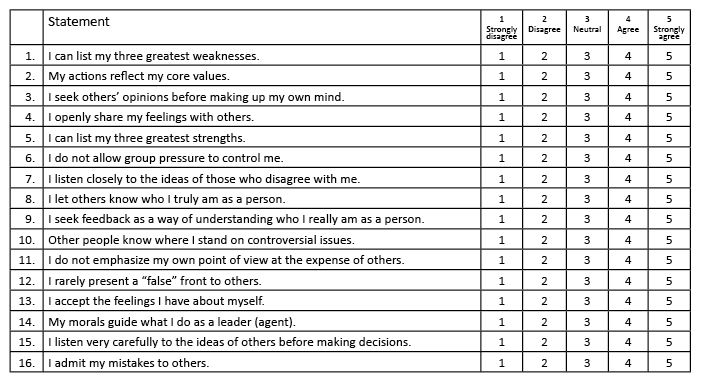THE KEY TO CREATING TRUST AND LASTING VALUE…ADOPTING AUTHENTIC LEADERSHIP

THE KEY TO CREATING TRUST AND LASTING VALUE…ADOPTING AUTHENTIC LEADERSHIP
A look at the Authentic Leadership Model and its five dimensions
Authenticity is a work in progress. The starting point is self-awareness, understanding your values and ethical position, and ensuring that these are aligned with your behavior.
Beyond Insurance
By Carolyn Smith, APR, TRA, ASA
In today’s world of fear and uncertainty, people crave bona fide leadership that they can trust-from government and corporate leaders to their insurance agent or broker.
Bill George, author of Authentic Leadership: Rediscovering the Secrets to Creating Lasting Value, says that authentic leaders know their “True North” and know who they are, where they are going, and what the right thing is to do. They understand their own values and behave toward others based on these values. In challenging situations, authentic leaders do not compromise their values-instead, they use difficult situations to strengthen their own values.
But how do we create that?
Applying the Authentic Leadership Model as an agent or broker
George describes five dimensions, each with an observable characteristic: purpose and passion, values and behavior, relationships and connectedness, self-discipline and consistency, and heart and compassion.
During a recent Beyond Insurance class, agents and brokers were asked: How do others perceive you? Let’s look at some of their responses and how they applied the five dimensions of authenticity.
Purpose and passion. Authentic leaders have a sense of purpose and know where they are headed. Purpose manifests itself as passion. Passionate people are inspired and intrinsically motivated, and they care about the work they are doing.
Tom, an agent with about 10 years’ experience, told the class that his clients view him as knowledgeable, friendly, someone who cares, honest, passionate, and likeable. He promises them, “I won’t over-sell you and will give it to you straight with real-life examples.”
By sharing his purpose and passion, Tom creates trust. His clients listen to him without the filters of fear or suspicion, and that gives his clients the confidence to follow his suggestions. His authenticity helps with retention.
Values and behaviors. Authentic leaders know what their values are, act on them, and never compromise. They value work that is done honestly and in the best interest of their clients.
Jamie shared that she uses her passion and “huge heart” to ensure that she is approachable with prospects and clients. She says that her clients trust her to look out for their best interests in every situation. Jamie focuses on communicating in a way that enables her clients and prospects to see and assess her competence and feel that she is trustworthy.
Relationships and connectedness. Authentic leaders are willing to share their experiences and listen to others’ experiences and are communicative about their intentions.
Harry, a new agent, calls himself an “inexperienced hustler” who talks and tries to sell too much. He rarely stops talking long enough to listen to his prospects’ or clients’ feedback. He usually tries to move fast, which gives his clients the impression that he is not taking time to learn about their business or to listen to them. He says, “My clients can get fast anywhere. When I don’t slow down and listen, I know that they are turning me into a commodity.”
Gina, on the other hand, told that class that she openly shares her story when she talks about her work and personal life, and always listens when others talk about their lives. She is honest about changes that are occurring, the thought process behind them, and demonstrates respect for those around her. Because she connects with her colleagues and clients, she enjoys tremendous respect in the community, and her clients are committed to implementing her ideas.

Self-discipline and consistency. This dimension of authentic leadership gives leaders the ability to focus on a goal (self-discipline) and move forward toward that goal even in the face of setbacks (consistency). Self-disciplined leaders remain cool, calm, and consistent during stressful situations.
Jake explained that he has learned to show self-discipline and consistency with prospects and clients: “I am not good with small talk, but because I am always consistent, my clients are confident in my abilities. Our conversations are no longer price-driven. Instead, we discuss risk management and solutions!”
Jake’s reputation has led to a strong stream of referrals because he is consistent in meeting his clients’ needs.
Heart and compassion. Authentic agents and brokers are sensitive to others’ needs and are willing to help them. They are genuinely concerned about their clients’ well-being and work to alleviate stress or pain as much as possible. They build genuine relationships from an open, truthful, and service-for-others mindset.
When Susan learned that the incumbent agent had lied to her prospect, she called the underwriter with the prospecton the line. Together, they uncovered the problem with the account and came up with creative solutions. Susan showed confidence in her abilities and the underwriter, and gave hope to the prospect. Her commitment to action was the culminating, defining step that led to unconditional trust.
Ultimately, these authentic agents and brokers showed great resilience, creativity, and strong ethical behavior-and they made the success of others their priority.
Authentic Leadership Self-Assessment Questionnaire (ALSQ)
Authenticity is a work in progress. The starting point is self-awareness, understanding your values and ethical position, and ensuring that these are aligned with your behavior.
Try taking the Authentic Leader-ship Self-Assessment Questionnaire to determine your own level of authentic leadership. There are no right or wrong responses, so please answer honestly. Use the following scale when responding to each statement by writing the number from the scale below that you feel most accurately characterizes your response to the statement.
(ALSQ created by Fred Walumbwa, Mind Garden, 2008)
Scoring
1. Sum the responses on items 1, 5, 9, and 13 (self-awareness).
2. Sum the responses on items 2, 6, 10, and 14 (internalized moral perspective).
3. Sum the responses on items 3, 7, 11, and 15 (balanced processing).
4. Sum the responses on items 4, 8, 12, and 16 (relational transparency).
Total Scores
Self-Awareness: ______
Internalized Moral Perspective: _____
Balanced Processing: _____
Relational Transparency: _____
Scoring Interpretation
Sores that are high = 16-20 and low = 15 and below. Scores in the upper range indicate stronger authentic leadership, whereas scores in the lower range indicate weaker authentic leadership.
Now that you have assessed these four components, you can develop each type of behavior more fully. Remember, this is a process that is improved over time, not a fixed trait.
By serving as an authentic leader with your prospects and clients, you will provide an answer to people whoare searching for good, sound leadership about insurance and risk management in an uncertain world. n
The author
Carolyn Smith is the director of Marketing and Innovation for Beyond Insurance and a performance coach for the Quest for Success and Reach Your Peak six-month coaching, mentoring, and performance-enhancement programs. Beyond Insurance is the premier coaching and training organization for insurance agents, brokers, and carriers who desire a consultative, diagnostic customer engagement process.











